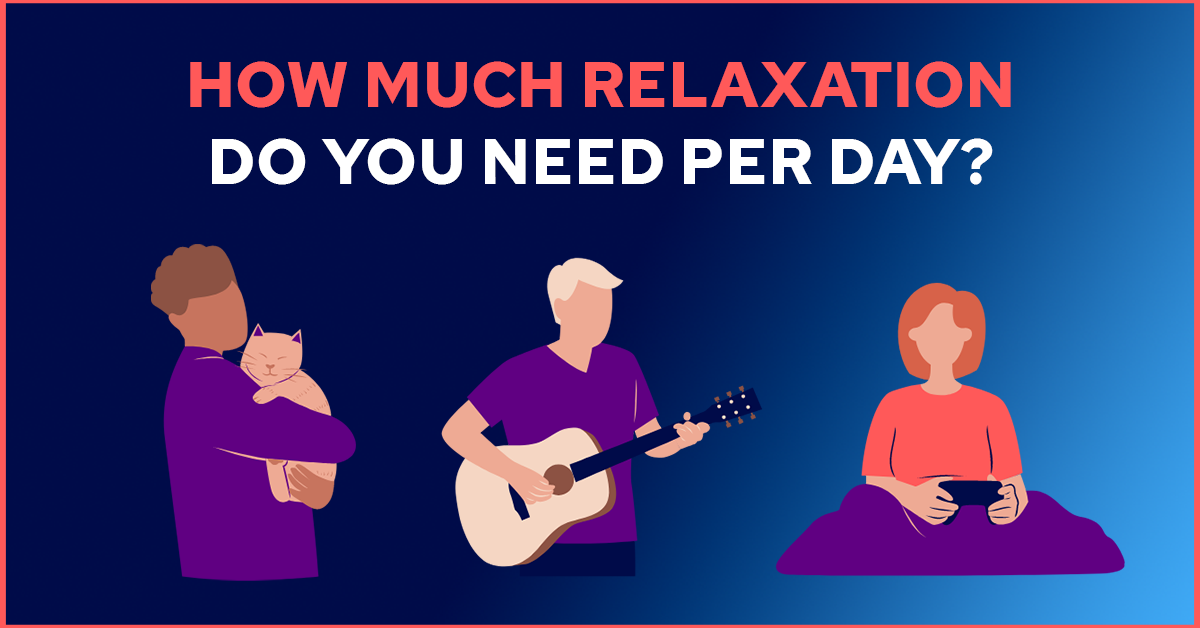How Does Meditation Increase Longevity? 5 Major Health Benefits of Meditation

Feeling tired or stressed is common. Good news: meditation can help you live longer and happier. This article shows how it improves your health and mood, making each day better. Stay with us to learn more!
Key Takeaways
- Meditation helps your heart stay strong by lowering blood pressure and reducing harmful proteins, which can make you live longer.
- Practicing mindfulness keeps your mind sharp and slows down brain aging, protecting against diseases like Alzheimer’s.
- Mindfulness boosts the immune system by increasing protective cells, helping you fight off illnesses more effectively.
- Mindful breathing improves heart health and lowers inflammation markers, contributing to overall well-being.
- Body scan meditation protects chromosomes from damage and reduces blood pressure, improving mental health and longevity.
What is Meditation?

Meditation is a method that focuses the mind and calms the soul. It involves sitting quietly and paying attention to thoughts, breaths, or feelings without judgment. This practice can take many forms, including mindfulness-based stress reduction (MBSR) and progressive muscle relaxation.
People use meditation to reduce stress, improve concentration, and foster a sense of peace.
This process boosts positive emotions which play a role in battling mental health challenges like social anxiety disorder, PTSD, anxiety disorders, and depressive episodes. Meditation supports happiness by encouraging individuals to live in the moment.
Regular sessions enhance the immune system’s function and lower inflammation in the body. Through simple daily exercises, practitioners learn self-control and how to manage negative emotions more effectively.
How Meditation Increases Longevity

Meditation increases longevity through mindfulness, which supports heart health and prevents cognitive decline. It also boosts the immune response, reduces cell aging, and alleviates psychological pain.
Mindfulness and Heart Health

Mindfulness practices help your heart stay healthy. They lower both the top number and bottom number in blood pressure readings. This means less stress on your heart, making it stronger and healthier over time.
With a stronger heart comes the chance to live a longer, happier life.
These practices also cut down on C-reactive protein levels in your body. Lower levels of this protein are good for your heart’s health and can keep diseases away. By practicing mindfulness meditation, more blood flows to your brain too.
This helps fight off harmful inflammation that can affect how well our hearts work. So, taking time for mindfulness could mean keeping our hearts going strong for years to come.
Mindfulness and Cognitive Decline Prevention

Meditation helps older adults keep their minds sharp. It leads to better decision-making and remembering. This practice decreases the amount of C-reactive protein in the body, which is a sign of less inflammation.
Less inflammation means a healthier brain. Meditation also increases CD4+ cells, making the immune system stronger.
Through regular meditation, people can slow down brain aging. Studies show that those who meditate have longer telomeres in their cells, which are linked to living longer and having less mental decline.
Keeping up with meditation can protect against diseases like Alzheimer’s by boosting memory and executive functions in the brain.
Mindfulness and Improved Immune Response

Practicing mindfulness through meditation can boost your body’s defense system. Research shows it decreases levels of proteins that cause inflammation and reduces stress hormones. Less inflammation means your body can fight off illnesses better.
Mindfulness also ramps up the production of protective cells, making you less likely to get sick.
A study found that people who meditate have more cluster of differentiation four plus t (CD4+T) cells in their bodies. These cells are vital for a strong immune system because they help protect against diseases.
By sitting quietly and focusing on your breath, you’re actually helping your body build a better shield against illness. Now, let’s explore how mindfulness slows down cell aging.
Mindfulness and Reduced Cell Aging

Now, how does mindfulness affect cell aging? Meditation has been found to increase the length of telomeres, protecting chromosomes from cell death and preventing telomere shortening due to psycho-social stress.
Furthermore, it affects cells at an epigenetic level by reducing methylation of tumor necrosis factor genes associated with psycho-social stress and enhancing immune system cells. These findings indicate that mindfulness practices can play a significant role in not only promoting emotional well-being but also contributing to physical health at a cellular level.
Mindfulness and Psychological Pain Reduction

Mindfulness meditation reduces psychological pain, promoting a sense of well-being and emotional resilience. This practice alleviates symptoms of anxiety, depression, and stress. Studies show that mindfulness enhances emotional regulation, reducing the intensity of negative emotions.
It empowers individuals to cope with psychological distress more effectively.
Moving on to the next section about “Health Benefits of Mindfulness Meditation,” let’s explore how this practice contributes to overall mental and physical wellness.
Health Benefits of Mindfulness Meditation

Mindfulness meditation offers numerous health benefits. It can prevent depression and anxiety, improve cognition, boost disease resistance, help manage pain, and enrich overall quality of life.
Prevention of Depression and Anxiety

Mindfulness meditation can reduce the risk of depression and anxiety, promoting emotional well-being. It has been proven to decrease the impact of suicidal thoughts and behavior in individuals with major depressive disorder.
Research suggests that mindfulness affects psychological wellbeing by improving mood, increasing positive emotions, and decreasing anxiety. Mindfulness meditation can also reduce anxiety and depression in older adults, enhancing their overall quality of life.
Meditation’s impact on reducing anxiety and depression is crucial for mental health support across various age groups.
Improvement in Cognition

Meditation boosts brain function, leading to better thinking and memory. It has positive effects on executive functions as well. Research indicates that meditation improves cognitive abilities by positively impacting attention, memory, and decision-making processes.
These benefits contribute to an overall improvement in cognition and mental clarity.
Moving on to the next section about “Disease Resistance.”
Disease Resistance

Meditation amplifies disease resistance by improving the immune system and reducing inflammation. It has been found to decrease cytokine levels, which are linked to chronic diseases like diabetes, hypertension, asthma, and rheumatoid arthritis.
Additionally, meditation affects cells at an epigenetic level by decreasing methylation of genes associated with psycho-social stress and strengthening immune system cells. Studies have also shown that meditation can increase the length of telomeres, protecting chromosomes from cell death and preventing aging due to psycho-social stress.
Pain Management

Mindfulness can help older adults better monitor and manage their pain, as it improves pain management in this group. Mindfulness reduces stress and deactivates brain regions associated with painful experiences, leading to improved pain management.
Additionally, mindfulness programs such as MBSR can relieve pain in older adults with physical limitations by allowing them to better cope with their discomfort.
Overall Quality of Life Enhancement

Transitioning from pain management to overall quality of life enhancement, mindfulness meditation offers a holistic approach to improving well-being. It not only assists in managing physical discomfort but also contributes significantly to emotional and mental health.
Mindful meditation has been linked to the promotion of positive emotions, addressing mental health concerns such as anxiety and depression. Furthermore, it aids in healthy aging by regulating telomerase and promoting an anti-inflammatory response, thereby upgrading overall quality of life.
Mindfulness meditation can positively impact social anxiety disorder, PTSD, anxiety, and depression through the cultivation of positive emotions. Moreover, it plays a crucial role in healthy aging by regulating telomerase activity and fostering an anti-inflammatory response.
Mindful Breathing and Its Impact on Longevity

Mindful breathing, a key aspect of mindfulness meditation, can significantly impact longevity. By increasing respiratory sinus arrhythmia, it promotes better heart health and the odds of surviving a heart attack.
This practice also positively affects markers of inflammation such as C-reactive protein, safeguarding physical health from potential harm. Through mindful breathing, individuals can actively contribute to their long-term well-being by improving heart function and reducing factors that lead to chronic conditions.
Body Scan Meditation and Its Health Benefits

Body scan meditation can lengthen telomeres, protecting chromosomes from cell death and preventing telomere shortening due to psycho-social stress. It affects cells at an epigenetic level, reducing methylation of tumor necrosis factor genes related to psycho-social stress and bolstering immune system cells.
Additionally, body scan meditation reduces systolic and diastolic blood pressure in patients with hypertension, especially those on anti-hypertensive medication. It can also improve social relationships and decrease loneliness for better mental health.
Furthermore, research has shown that long-time practitioners of body scan meditation may have greater telomere lengths, suggesting a role in slowing cell aging and increasing longevity.
Conclusion

In conclusion, meditation offers numerous health benefits that contribute to increased longevity. Mindfulness meditation positively impacts heart health, cognitive function, immune response, and cell aging.
It also aids in preventing depression and anxiety, improving cognition, enhancing disease resistance, managing pain, and overall quality of life. Additionally, mindful breathing techniques and body scan meditation further promote physical and mental well-being.
Embracing meditation as part of a daily routine can significantly enhance both physical and emotional health while contributing to a longer and healthier life.
FAQs
1. How does meditation help your heart?
Meditation can lower heart rates, reduce blood pressure, and reduce the risk of heart disease by improving relaxation training, which leads to healthier hearts.
2. Can meditation boost my immune system?
Yes! Meditation increases natural killer cells and immunoglobulins in your body, making your immune function stronger to fight off diseases.
3. Does meditating make you live longer?
Studies suggest that regular meditation may increase longevity by reducing stress, strengthening emotional health, and lowering risks for conditions like dementia and Alzheimer’s disease.
SELF-DEVELOPMENT Pro Tip: Practicing meditation can also elevate feelings of connection with others, community, and a sense of meaning and purpose that develops over time. Research has shown that this can lead to a more content and fulfilled life with a longer lifespan.
4. How does meditation affect mental health?
Meditating regularly helps decrease depression symptoms, anxiety, job burnout, and negative thoughts while boosting self-esteem and executive functioning for better emotional balance.
5. Can meditation help with addiction treatment?
Absolutely! Research on mindfulness shows that meditation aids in addiction treatment by helping individuals cope with cravings through improved focus and compassion towards themselves during recovery.
6. What are other benefits of practicing meditation daily?
Besides increasing longevity, daily practice can boost memory functions such as short-term memory and episodic memory due to its positive effects on the hippocampus part of the brain.












